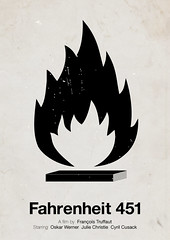Knowledge institutions build upon each other. Each plays a different role in molding the human experience. You need them all to gain the ultimate human experience. Yet despite the necessity of every type of knowledge institution, the tradition with the most powerful effect on human emotion is oral knowledge.
Showing posts with label Final Exam. Show all posts
Showing posts with label Final Exam. Show all posts
Wednesday, December 14, 2011
Final: So long, Farewell
Labels:
Final Exam,
folk knowledge,
Kimberly Gidney,
oral knowledge,
Printed Knowledge,
Written Knowledge
Tuesday, December 13, 2011
Final: Essay Based on the Salon
Printed knowledge has been very important in history in
relation to religion. The Reformation is a great example of how printed
knowledge impacted many people. This being true, I argue that oral and written
knowledge has had a bigger impact than that of printed words. Oral knowledge has a power over people when
delivered right. A Great speaker can move many people to action. Written
knowledge solidifies what oral knowledge can’t. An idea can be preserved
through writing.
Final Exam Post: All I've learned
 Looking back at history we clearly see and trace how different formats for the transfer of knowledge, folk, oral, written, and printed, have each contributed to the basis of knowledge available to many today. Despite all of the knowledge that has reached the modern world, many other pieces of knowledge did not make it due to censorship in each time and unique to each medium used to preserve knowledge. Whether on purpose or not each form of knowledge has inherent cracks that can allow even the most valued knowledge to slip through, our problem is to find them and stop them before we lose more.
Looking back at history we clearly see and trace how different formats for the transfer of knowledge, folk, oral, written, and printed, have each contributed to the basis of knowledge available to many today. Despite all of the knowledge that has reached the modern world, many other pieces of knowledge did not make it due to censorship in each time and unique to each medium used to preserve knowledge. Whether on purpose or not each form of knowledge has inherent cracks that can allow even the most valued knowledge to slip through, our problem is to find them and stop them before we lose more.
Monday, December 12, 2011
Final Notes: Kimberly
Here are some of my ideas for the final. I am curious to see the themes that everyone else found!
Notes for Final: Erin
These are my notes for the final event/exam we are having tomorrow. I'm not sure if they are supposed to be in a table format like Emily's, but I just can't think that way. For these notes I first went through all of my posts, and tried to categorize them by focus area and then unit. My main focus for this class was to try and bring some relevance through self directed learning, so that's where most of my posts went. I then took a larger look at our blog in general. Here they are!
Notes for the Final: Emily
Unit
1: Folk Knowledge
|
Unit
2: Oral Knowledge
|
Unit
3: Written Knowledge
|
Unit
4: Printed Knowledge
|
|
Self-
Directed Learning
|
~ Taught/learned
a skill
~ Research
types of folk knowledge (singing, cooking, medicine, beauty)
~ Etiquette
|
~ Akkadia:
~ Hymns/songs
~ Myths
(water theme, flood and Moses stories)
~ Origins
~ Songs
brought together conquered countries by combining deity
|
~ Akkadian
Cuneiform
~ Propaganda
(cylinders)
~ Mainly
religious and business
~ Adopted
and modified Sumerian writing. Sumerian writing and language became obsolete
~ Sufism
|
~ How
printed knowledge affected the Reformation
~ Propaganda
~ Books
and witch burning
~ Annotated
Bibliography
~ Using
the library system
~ Woodcuts
|
Other’s
Blogging
|
~
Braiding
~
Learning to drive stick (Erin)
~
School ground knowledge (Kim)
~
Harp
~
Manicures, beauty (Madi)
|
~
Myths
~
Origin stories
~
Songs
~
How languages died out (Kim)
~
Kim: Samaria
~
Erin: Navajo
~
Madi: Rome
|
~
Cartography
~
Codex
~
Egyptian hieroglyphics
~
Paper making
|
~
Typography
~
Censorship
~
Print and Religion
~
Book Binding
~
Standardization
|
Collaborative
Learning
|
~ Class
discussion Bryn Mawr commencement address
~ Oral
group test
|
~ Group
video
~ King
Benjamin Speech
|
~ Group
projects about writing and translating
~ I
learned that if a language didn’t have a written language, it soon died out
|
~
Group editing of papers
~
Class discussion: Walter Ong
|
Projects/
Activities
|
Teaching/ learning a “folk” skill
|
~
King Benjamin Speech, group practice of speech
and performance
|
~
Rosetta stone Project
~
Library Speaker about writings in books/
scrolls/ on papyrus
|
~
Written paper
~
Library Speaker about codex’s
|
Subscribe to:
Posts (Atom)